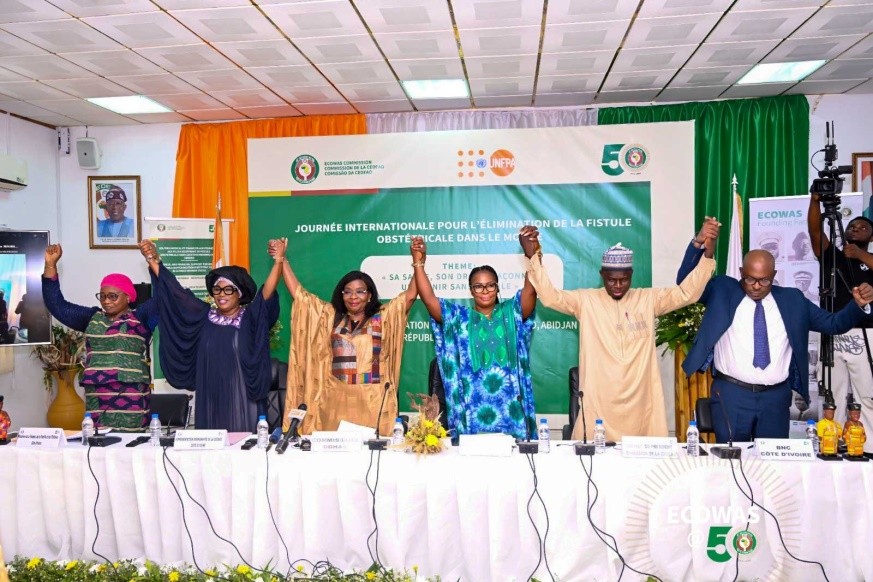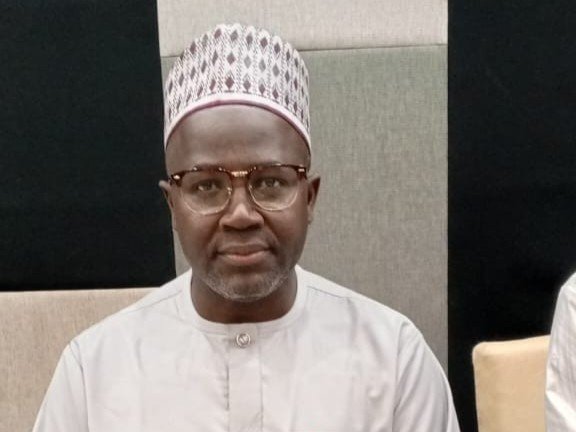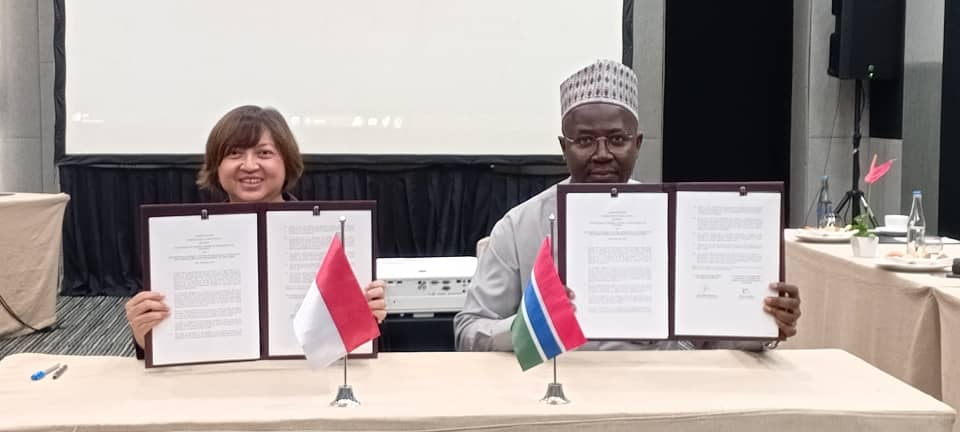The ECOWAS Gender Development Centre (EGDC), in partnership with UNFPA, at the weekend, commemorated the International Day for the Elimination of Obstetric Fistula alongside ECOWAS’ 50th anniversary.
Obstetric fistula, a severe childbirth injury affecting over 2 million women globally, remains a pressing issue in low-resource settings. ECOWAS has renewed its commitment to addressing this condition through a holistic strategy involving medical, psychological, and socio-economic support.
“This integrated, rights-based approach must be sustained through participation, transparency, and international cooperation,” said Prof. Fatou Sow Sarr, ECOWAS Commissioner for Human Development and Social Affairs. She emphasised the importance of continued resource mobilization and praised Spain’s collaboration in enhancing medical capacity in Côte d’Ivoire, Guinea-Bissau, Liberia, and Senegal.
Ambassador Fanta Cissé, ECOWAS Resident Representative in Côte d’Ivoire, noted encouraging progress: “Fistula prevalence dropped from 32% to 29% in some states between 2020 and 2021, thanks to better healthcare access and efforts against early marriage and female circumcision.”
Dr Isata Mahoi, Sierra Leone’s Minister for Gender and Children, highlighted her country’s strides, with routine treatment rates for complex cases rising from 10% in 2010 to 80% today. She urged stronger legal frameworks and non-discriminatory policies for long-term success.
Côte d’Ivoire and Ghana also shared national strategies moving beyond isolated campaigns towards routine, accessible care for women affected by fistula, an approach ECOWAS is promoting regionally.
Looking forward, EGDC is launching innovative health initiatives, including the production of sanitary pads and reusable nappies in collaboration with the West African Health Organisation (WAHO). The initiative aims to reduce school dropouts among girls and provide support to women facing intimate health challenges.
The event reflected both a celebration of ECOWAS’ five decades of regional development and a renewed call to action for gender equity and reproductive health in West Africa.






